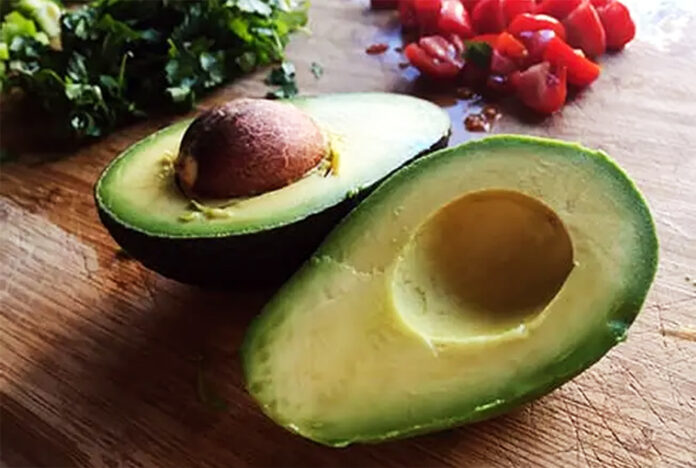It’s Easy Being Green
They’ve been the darlings of social media, and they’ve been called “America’s new favorite fruit.” Turns out, avocados are popular for good reason. Not only are they delicious, they’re packed with vitamins, minerals, and other nutrients that can help keep you healthy.
Better Than a Banana
Your body needs potassium to work normally. For example, the mineral helps keeps your heartbeat steady. Most people think of bananas when they think of this nutrient. But ounce for ounce, avocados have more.
Protect Your Eyes
Avocados have lutein and zeaxanthin, which absorb light waves that can harm your vision. People who eat lots of foods rich in these antioxidants are less likely to have age-related macular degeneration, the leading cause of blindness in older adults. Most of an avocado’s antioxidants are found in the darker green flesh that’s closest to the peel.
Help You Lose Weight
A half-cup of guacamole has about 6 grams, almost 1/4, of your daily fiber needs. Fiber helps you feel full, so you’re less likely to overeat. And although avocados are high in fat, it’s mainly healthy monounsaturated fat. Research has found that this type of fat in your diet can help trim your waistline. Instead of chicken salad with mayo, try chickpeas with mashed avocado.
Boost Your Mood
In a cup of avocado slices, you’ll get about 118 micrograms of folate, which is almost a third of what most adults need daily. People who don’t get enough of this B vitamin could be more prone to depression — and less likely to respond well to antidepressants. Folate also plays a role in preventing birth defects, so expectant and new mothers are encouraged to get more.
Power You Up
These green gems are packed with a variety of other B vitamins, too, including thiamine (B1), riboflavin (B2), and niacin (B3). These help your body convert the food you eat into energy. Avocados are especially rich in niacin, which can fight inflammation in the body and protect your arteries by improving cholesterol and triglyceride levels.
Good for Your Heart
Speaking of your blood vessels, the American Heart Association recommends that the majority of the fat you eat be unsaturated, like you’ll find in avocados, rather than the saturated fats in foods like red meats and whole-milk dairy foods. Early research now shows that avocados in particular can also help lower “bad” cholesterol, triglycerides, and blood pressure.
Save Your Brain
Avocados give you a good dose of vitamin E, which may help protect against Alzheimer’s disease and slow decline in your memory and thinking skills. This may have to do with vitamin E’s antioxidant properties — it can help fight cell damage caused over time by things like pollution and radiation from the sun.
Strengthen Bones
On average, people eat half an avocado at a time. That gives an adult 15% of their daily vitamin K needs. This nutrient may help improve bone density and prevent fractures. Toss avocado pieces into a spinach salad with salmon, tuna, or egg for even more vitamin K along with vitamin D, another nutrient that’s essential for bone health.
Healthy Blood Sugar
Because they’re low in carbs and sugar and high in healthy fat and fiber, avocados check all the boxes as far as being friendly for someone with diabetes. If you don’t have it now but are worried about the future, here’s some good news: Eating a plant-based diet (that includes avocados) could drop your chance of developing type 2 diabetes by about 20%, according to a Harvard study that tracked 200,000 people for 20 years.
Skin Care
Whether you eat it or make it into a mask, avocado is great for your skin. Its antioxidants, like vitamin C, can help keep your skin looking youthful by smoothing out wrinkles. And the same nutrients that protect your eyes also protect your skin from UV damage. Avocado paste may help wound healing, so you could slather it on a sunburn.
Fight Cancer
Avocados have oleic acid, a monounsaturated fatty acid (also found in olive oil and nuts) that can slash the odds of breast cancer, according to a study of more than 4,000 women. And a compound in avocados called avocatin B can kill leukemia cells, according to a lab study. Scientists are even looking into whether the papery husks that surround avocado pits have anything helpful.
Improves Prostate
Beta-sitosterol, a kind of plant sterol, may help relieve symptoms of an enlarged prostate. (It’s part of the family of phytonutrients that help block your body from absorbing “bad” LDL cholesterol.) Avocados have more than four times as much beta-sitosterol as oranges, the next richest fruit source.
Team Player
Certain nutrients — like vitamins A, D, E, and K, and the antioxidant lycopene — are fat-soluble, which means your body will absorb more of them when you eat them along with some fat. Enter the avocado, which just so happens to taste delicious with tomatoes. Try it with pink grapefruit, watermelon, or cantaloupe, too.
Credit: webmd.com










